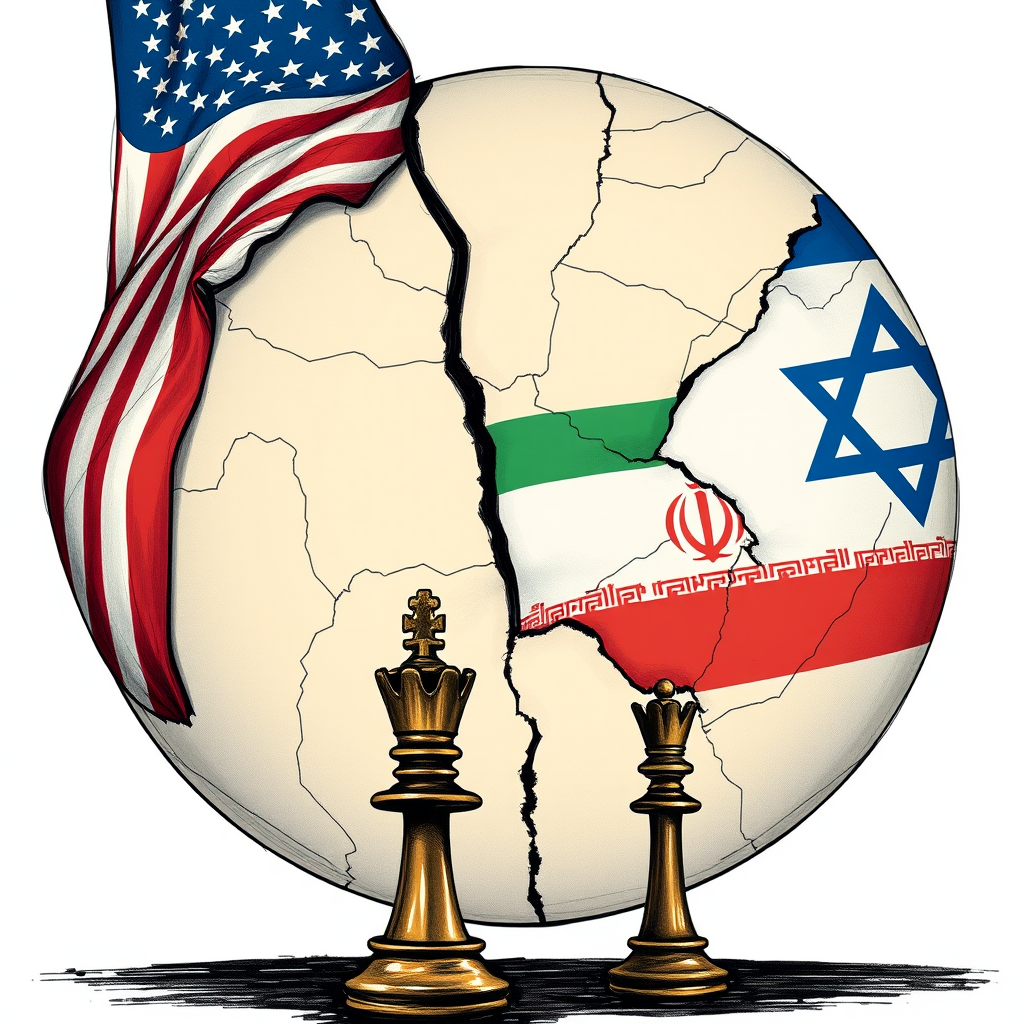US Role in Iran Attack Under Scrutiny

The escalating conflict between Israel and Iran has ignited a firestorm of questions regarding the extent of U.S. involvement, with official denials clashing with mounting evidence suggesting a more complex relationship than Washington admits. While the Trump administration publicly maintains its non-participation in Israel’s attacks – dubbed “Operation Rising Lion” and initially targeting Iranian nuclear facilities and military leaders – numerous reports indicate a degree of coordination and tacit approval.
The conflict began with Israeli strikes early Friday, swiftly followed by Iranian retaliatory attacks on Tel Aviv and Jerusalem. Iran alleges “solid evidence” of U.S. support for the Israeli offensive, claiming the attacks “could not have been carried out without coordination with and approval of the United States.” Secretary of State Marco Rubio characterized the Israeli action as “unilateral,” yet acknowledged prior notification to the Trump administration – a detail echoed by both Trump and Israeli Prime Minister Benjamin Netanyahu. The U.S. also evacuated embassy staff across the region the day before the attacks commenced.
The narrative becomes increasingly murky when considering statements made by President Trump himself. In a post on Truth Social, he urged Iran to “make a deal,” hinting at awareness of “next already planned attacks.” Later, when questioned by the Wall Street Journal about a “heads-up” regarding the initial strikes, Trump dismissed the term as an understatement, stating, “We know what’s going on.” This was followed by a contradictory claim on Saturday night that “The U.S. had nothing to do with the attack on Iran.”
News outlet Axios reported Friday that Israeli officials asserted the strikes were, in fact, coordinated with the U.S., alleging a “clear U.S. green light” given privately despite public opposition. Further reports indicate the White House actively dissuaded Israel from a plan to assassinate Supreme Leader Ayatollah Ali Khamenei, a detail confirmed by unnamed U.S. officials to Reuters, the Associated Press, and CNN. Netanyahu’s spokesperson, Omer Dostri, vehemently denied these claims as “fake.”
The conflicting messaging suggests a possible disconnect between U.S. and Israeli priorities. Trita Parsi, executive vice president of the Quincy Institute for Responsible Statecraft, believes “clearly there had been coordination and some form of a green light” from the Trump administration. He posits that Trump may be gambling on the attacks softening Iran’s position, potentially hoping to force the country into capitulation, or even, as Parsi suggests, hoping for a response that would justify direct U.S. intervention.
The situation is deeply concerning. While the U.S. maintains it seeks a diplomatic solution, the evidence points to a level of involvement that goes beyond mere awareness. The ambiguity surrounding U.S. actions risks escalating the conflict, potentially drawing the world’s largest military into a regional war with devastating consequences. The lack of transparency from all parties involved only exacerbates the danger, making de-escalation increasingly difficult and raising serious questions about the true intentions behind the actions of both the U.S. and Israel.